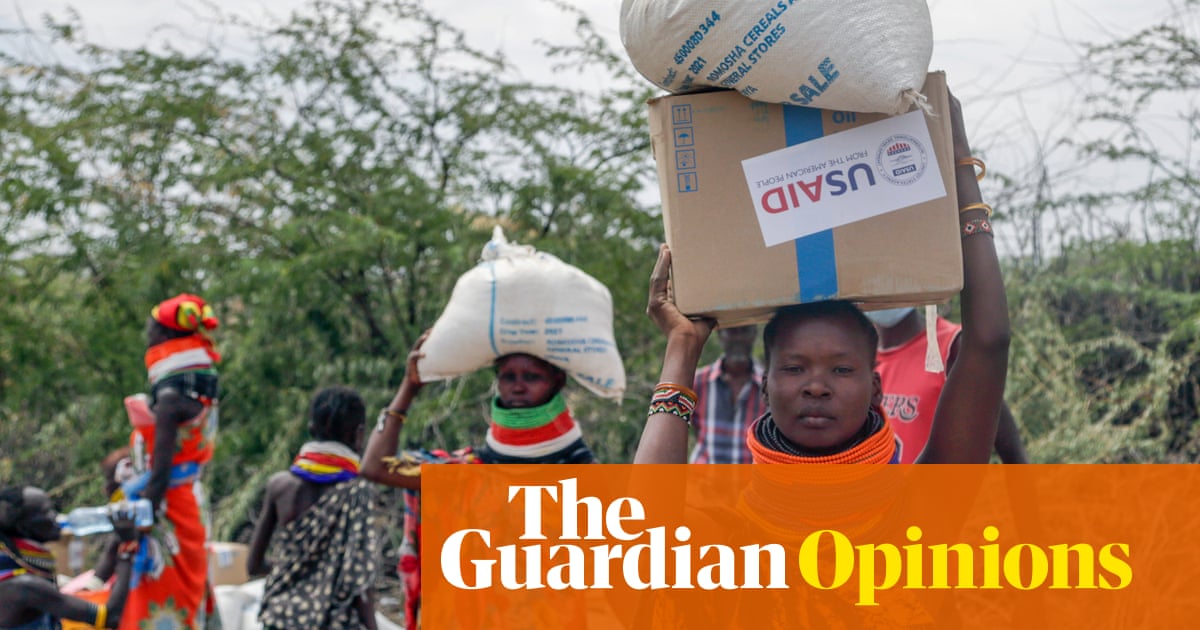When one door closes, you would hope that another opens. AsUSAIDwas formally shut down on Monday, a once-in-a-decade development financing conference was kicking off in Seville. But while initially intended to move the world closer to its ambitious 2030 sustainable development goals, it now looks more like an attempt to prevent a reversal of the progress already made.
A studypublished in the Lancetpredicted that Donald Trump’s aid cuts could claim more than 14 million lives by 2030, a third of them among children. For many poor countries, the scale of the shock would be similar to that of a major war, the authors found. More than four-fifths of the US agency’s programmes have been cut, with surviving projects folded into the state department.
The US was by far the world’s largest donor to global development – though its contributions were a fraction of the G7 target of 0.7% of GDP. Yet the damage does not end there. Its move encouraged others to follow suit. The UK, Germany and France are slashing their aid budgets to spend more on defence. Oxfam says that the collective retrenchment by G7 nations isthe biggest aid cut since 1960, with spending 26% lower in 2026 than it was last year. Don’t expect China or the Gulf states to fill this gaping hole.
It is not just grim news for aid recipients. It bodes ill for all. It would be naive to imagine that aid is a high‑mindedly altruistic endeavour. Just as conflict breeds hunger and poverty, so injustice and deprivation breed instability and a more dangerous world. Slashing health budgets also increases the risks of another global pandemic.
Developing countries hoped that the UN- and Spanish-hosted International Conference on Financing for Development would at least see a willingness to tackle an international financial system stacked against the global majority. Instead, the US, UK, EU and others shamefullyacted as blockers, watering down the language on a UN intergovernmental process to tackle the debt crisis. The US reportedly proposed 400 amendments across a multitude of issues to the conference’s outcome document beforepulling outentirely. Others will need to be held to their too-limited commitments.
More thantwo-fifths of the global populationlive in low income countries whichare in debt distress or close to it. Many poor African nations are spending more on debt financing than they do on health or education. Contrary to popular perception – and any sense of justice and decency – wealth is flowing from them to developed nations. The UN says that servicing debt cost developing countries $847bn last year, rising to $947bn this year.
Yet developed countries are choosing to shore up an unfair global financial system. The keenness of the UK and others to focus on private sector‑oriented solutions looks like better news for the City than developing nations. The promise that private finance would turn “billions to trillions” was enthusiastically promoted a decade ago, yet largely failed to materialise.
Despite the enduring inequality, the last few decades saw extraordinary progress in areas such as cuttingchild mortality. For all their flaws, USAID-funded programmes alonesaved almost 92 million livesover 20 years. We know that remarkable leaps in human wellbeing are possible. We will all regret it if, in this time of conflict and crisis, we slam the door shut on such advances and block out the call of justice.
